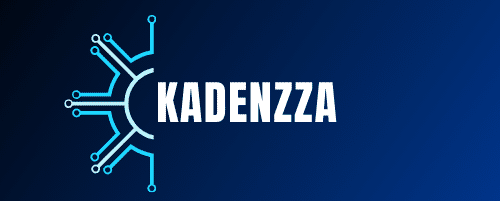Can AI Predict the Success of Crowdfunding Campaigns More Accurately?

The world of crowdfunding is riddled with uncertainty. Each campaign is a gamble, with success often down to the whims of the crowd. But what if we could predict the outcome of these campaigns? What if we could harness the power of artificial intelligence (AI) to analyze the data from thousands of crowdfunding projects and predict their success more accurately? In this article, we will delve into the possibilities of using AI for crowdfunding predictions, discussing models, learning analysis, and feedback processes, and how they can help both the project creator and potential donors.
The Role of AI in Crowdfunding
Artificial intelligence has revolutionized various industries, and crowdfunding is no exception. With vast amounts of data available, it is becoming increasingly viable to use AI models to predict the success of a project based on historical data.
A lire aussi : What Technologies Are Making Virtual Concerts a Reality?
The first thing to understand is that AI is not a crystal ball. It doesn’t have the ability to predict future events with absolute certainty. What an AI model can do is analyze patterns and trends in the data and, based on these, provide a prediction of the most likely outcome. By feeding the AI with data from past crowdfunding campaigns, it can learn what factors led to success or failure, and apply this learning to future campaigns.
This approach has several advantages. Project creators can receive feedback on their campaign before launching, and make necessary adjustments to increase the likelihood of success. Donors, on the other hand, can get a more informed picture of the likelihood of a project reaching its funding goal, which can help them decide where to put their money.
En parallèle : How Is AI Being Used to Enhance User Interface Design?
Understanding the Data
For any AI model, the data it learns from is crucial. In the case of crowdfunding, the available data can come from various sources. For instance, the campaign’s information on the crowdfunding platform, the social media activity related to the campaign, and the feedback from donors are all valuable data sources.
Data from the crowdfunding platform can include the project’s category, the funding goal, the time period for the campaign, and the number of backers. Social media activity can give a sense of the buzz around the project, and feedback from donors can provide insights into what they liked or didn’t like about the campaign. Crossref, a scholarly journal database, can also be a valuable source of data for research-based projects.
These data points, when analyzed together, can form a comprehensive picture of a crowdfunding campaign. The AI model can then use this picture to make its predictions.
The AI Learning Model
The AI learning model for predicting crowdfunding success is typically based on machine learning algorithms, which learn from the data input, identify patterns and make predictions accordingly.
The AI model processes the data, learning from successes and failures of past campaigns. The more data it has to learn from, the more accurate its predictions will be. Over time, the model will continue to learn and improve its predictions, based on the new data it receives.
One of the key factors that the AI model considers is the campaign’s funding goal. A campaign with a high funding goal may be seen as more risky, and therefore less likely to succeed, than a campaign with a more modest goal.
Analyzing the Success of Crowdfunding Campaigns
The success of a crowdfunding campaign isn’t just about whether it meets its funding goal. The level of engagement from backers, the number of shares on social media, the feedback from donors – these are all indicators of a successful campaign. The AI model takes all these factors into account when predicting the success of a campaign.
The AI model doesn’t just predict whether a campaign will succeed or fail, but also provides insights into why it might succeed or fail. This feedback can be invaluable for campaign creators, as it allows them to tweak their campaign to increase their chances of success.
The Future of AI and Crowdfunding
The integration of AI in crowdfunding is still in its early stages, but the potential is immense. As the technology continues to advance and more data becomes available, the predictive capabilities of AI will continue to improve.
Already, crowdfunding platforms are starting to incorporate AI into their services. For instance, some platforms now offer AI-based tools that can provide feedback on a campaign before it is launched.
As AI becomes more integrated into our lives, we can expect it to play an increasingly important role in the world of crowdfunding. Whether you’re a project creator looking to increase your chances of success, or a donor wanting to make more informed decisions, AI can provide valuable insights and predictions that can help guide your choices.
Remember that AI is a tool, not a magic solution. The success of a crowdfunding campaign is ultimately down to the quality of the project and the effort put into the campaign. But with AI, we now have a way to make more informed predictions and decisions, helping to reduce the uncertainty that has long been a part of the crowdfunding experience.
Google Scholar and AI’s Role in Crowdfunding Research
Google Scholar can provide a goldmine of information for AI applications in crowdfunding. Google Scholar is a freely accessible search engine that indexes the full text of scholarly literature across an array of publishing formats and disciplines. The platform is a boon for crowdfunding projects that require detailed and comprehensive studies.
With AI, we can parse through numerous research papers and articles to find patterns and trends. By gathering a wide range of data from these sources, AI can better predict the success of crowdfunding campaigns. The information harvested can help understand the public’s reaction to previous campaigns, their interest in different kinds of projects, and how different factors influence their decision to donate.
For instance, AI can examine papers exploring the impact of a project’s category on its success, or studies outlining how successful campaigns engaged with their potential donors. This information can be crucial in shaping future campaigns. It can help project creators to understand what works and what doesn’t, and formulate their strategies accordingly.
In this way, AI goes further than just predicting success – it provides an insightful analysis of the factors that drive success. It is not just about predicting whether a campaign will hit its funding target, but also about understanding why it might hit or miss the target.
Conclusion: A New Paradigm for Crowdfunding
As we move deeper into the era of artificial intelligence, we are beginning to understand the profound impact it can have on industries like crowdfunding. Beyond just predicting the success of crowdfunding campaigns, AI can provide detailed, insightful, and actionable feedback, helping both project creators and potential donors make informed decisions.
AI is poised to bring a new level of sophistication to crowdfunding. It offers a way to handle the vast amounts of data generated by crowdfunding platforms, analyze this data, and provide predictions and insights that were previously impossible. The ability to understand and predict public response to a campaign can be a game-changer for project creators. It can help them to hone their campaigns, improve their strategies, and increase their chances of success.
For donors, AI can provide a new level of transparency. By predicting a project’s likelihood of success, donors can make more informed decisions about where to put their money. It can help them identify projects they are more likely to support and love, making their contributions more meaningful and satisfying.
Remember, though, that AI is not a panacea. The success of crowdfunding campaigns still hinges on the quality of the project and the commitment of the team behind it. AI can provide valuable insights and predictions, but it cannot guarantee success. It is a tool, not a guarantee.
However, it is a tool that is showing immense promise. As we continue to refine and improve AI models, their predictions will become more accurate, and their insights more valuable. The integration of AI in crowdfunding is an exciting development, and one that could reshape the landscape of crowdfunding in the years to come. As we move forward, it’s clear that AI and crowdfunding will continue to evolve together, bringing new possibilities and opportunities to this dynamic field.
